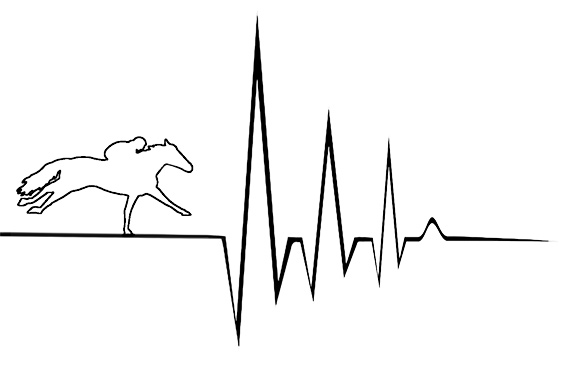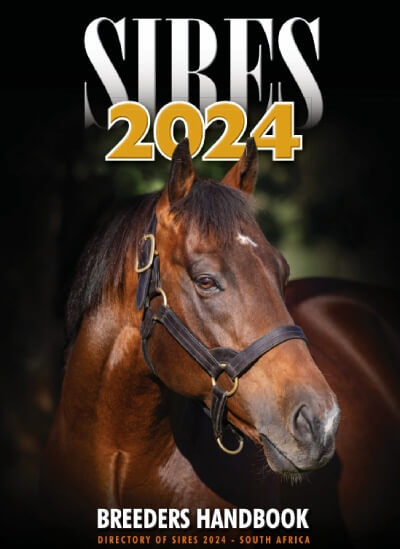On July day this year, I was alerted to an anti racing post on social media. It was taken from the National SPCA website and posted by a seemingly ordinary member of the public.
While the NSPCA are responsible for writing the statement – and it is still up on their website – the user’s post had been shared in the region of 80 times, gathering negative comments as it went. One single post! And we have no way of telling how often the SPCA’s original statement was shared.
How to entrench belief
We have had sensationalist anti racing campaigns in Australia, the PETA expose, Emily Jones and her random attack on the Melbourne Cup two years ago and on it goes. Usually, racing just sighs, ignores it and carries on. While this is jolly tolerant, it is both dangerous and stupid.
These attacks are becoming more frequent. So frequent, in fact, that it’s become quite acceptable for perfectly normal people to take a sledgehammer to racing’s reputation for absolutely no reason at all and to share it on social media.
For an industry that relies on public participation, it seems unintelligent to allow seemingly rational people to go around saying things that are not factually correct and spreading them as truth, without either challenging these statements or trying to work out why it is that people seem to dislike racing so vehemently and – more importantly – whether there is anything we can do about it.
Case study
The Durban July post was interesting for several reasons. Firstly, it showcased this anomaly in action. It showed a perfectly normal member of Joe Public with no apparent involvement in horses or racing sharing some strong anti-racing sentiment. The content was already a year old, so presumably it had been selected for shock value and lastly, it was worded and timed to target the Vodacom Durban July – our biggest audience of the year.
Secondly, it was successful. At the time I saw the post, it had already been shared close on 80 times. That’s a lot. The comments it generated were not positive and were of a similar vein to the original post. In addition, it was merrily spread across the internet – by additional non-racing, non-horsey people – as gospel truth, gathering negativity as it went.
This bothers me because if something is repeated often enough, people start believing it. Every time negative comments are made about the racing industry, they stick and it takes a great deal of work to undo the damage. And as racing rarely responds, these ideas have taken root and run riot.
It is important to engage
 The joy of the internet is that it is an open forum. I decided to take the post as an invitation to a conversation and set them straight on a few things. A few other people joined in (yay! dialogue!), but before long, things got a little out of hand and the post was deleted. While I sympathized to a degree – the response was probably not what the poster expected – it was interesting nonetheless. So it was a shame that the conversation got pulled when it did, because we were just starting to smooth a few feathers and head into sensible conversation territory.
The joy of the internet is that it is an open forum. I decided to take the post as an invitation to a conversation and set them straight on a few things. A few other people joined in (yay! dialogue!), but before long, things got a little out of hand and the post was deleted. While I sympathized to a degree – the response was probably not what the poster expected – it was interesting nonetheless. So it was a shame that the conversation got pulled when it did, because we were just starting to smooth a few feathers and head into sensible conversation territory.
Whether the other parties are still interested in talking or not, I think this is an important conversation for racing. I am fascinated to find out what prompted this kind of thinking in the first place and secondly, how we have travelled so far down the road and have done ourselves such massive PR damage that the only thing perfect strangers ‘know’ about racing is that it is cruel and exploitative and are happy to spread this ‘fact’ despite having no first hand knowledge. I knew things were bad, but I honestly didn’t realise they were THIS bad.
Unfortunately, with the post removed, I was unable to get to the bottom of it and worse yet, the dialogue, as well as any potential lessons, were lost. There was no more exchange of thoughts and ideas and parties on both sides simply huffed off and reaffirmed their opinions of each other.
On the trail
Thoroughly fascinated, I canvassed a few random friends and acquaintances for opinions on racing and again, the answers were illuminating. And depressing. The automatic response was negative. It was also wholly uninformed, consisting of nebulous sweeping statements such as ‘They start horses too young.’ ‘They don’t feed them correctly’. ‘It’s all fixed’. ‘The horses are all drugged.’ This is who the outside world thinks we are and what we do. It is terrifying.
While every industry has its bad eggs, racing has tons of incredibly talented and passionate people who do care about our horses. We even have rules to that effect. Yes, one can argue that the rules are not always enforced, but it is a start and it’s also more than any other industry or sector of the equestrian industry has. So tarring everyone with the same brush is not only unfair, it is not true.
What this means
During the ITBF Congress back in January, Dr Iris Bergmann quoted Racing Australia’s Peter McGauran’s statement that, “The idea of a competitive animal sport operating in its own bubble is archaic. We operate under a social license.” In other words, we are only allowed to continue racing as long as we conform, or at least fly under the radar, of accepted norms and standards.
The problem is that society is changing and so is its perceptions and tolerance levels for sports like ours. As my recent experience illustrates, we are skating ever closer to the edge. If we want to remain relevant – or even have a say as to why we should be considered relevant – we will have to speak up fast. Preferably we firstly need to buck up and then speak up, because judging by some of the comments, we are in deep trouble and by not addressing any of it, these ideas have become very firmly entrenched. And the longer we rest on our laurels, the worse it’s getting. I repeat, that post got 80 shares in the space of two days. TWO DAYS.
Vicky Leonard
Then along came Vicky Leonard and her great blog post last week. I was delighted (mainly because her findings matched my own) that when she asked similar questions she was told racing is a “controversial, antiquated industry.” She consulted some agencies who specialize in these things and the statistics bore out her findings – most people have no idea that racing exists and those that do, perceive it in a negative light. “Their perception of horse racing was that it either challenged their moral compass on social issues, or they thought it was outdated: a sport for old men in dingy pubs.”
Vicky reached much the same conclusion as Dr Bergmann. “Expectations of society have changed, whether we accept that or not will guide our future progress.” Like it or not, we are going to have to engage and we are going to have to change. A friend recently opined that racing succeeds in spite of itself. Perhaps that is true and perhaps the sport has carried us along to date, but I think realisation is dawning that this is no longer a successful survival strategy and that we need a serious re-think. Assuming it’s not already too late.
Solutions
Vicky suggests using the portion of people with no idea about racing as a ‘clean slate’ and using their knowledge vacuum as an opportunity to fill it with positive information about racing. She says we need to “Tell the stories of the horses, and the people who dedicate their lives lovingly tending to them. Share accurate statistics on Thoroughbreds being rehomed post racing. Show the farms where the horses are raised, the high level of care and attention they are given, and explain the regulation and integrity processes that protect them.”
I applaud her ideas, but am concerned about our ability to put them into practice. Luckily, there is no question that we have wonderful horses and wonderful people. You only have to look to last weekend’s July result for more feel-good wonderfulness than you can shake a stick at. However, we have no statistical information on Thoroughbreds being rehomed after racing. We do not even have accurate statistics on the number of horses entering and leaving racing. Point 3, “Explain the regulation and integrity processes.” Well, there’s a subject that goes under a big, fat ‘Hmmm’. Particularly when we have just had a spate of stuff ups which seems to have originated at the Vaal, travelled to KZN and now arrived in Cape Town.
Take home lesson
The end message is clear. We need to get our house in order before we can even THINK of trying to sell our sport to the outside world. If we do not, we will be judged – because that is what the modern consumer does – and we will be found wanting. And then we will be relegated to the trash heap. And it’s very, very difficult to come back from there.
Global management guru Simon Sinek loves the phrase ‘start with why’. To me, the ‘why’ of what we do is in our name. Horse racing. We race horses. Everything we do depends on and revolves around our horses. Perhaps if we can go back to those first principles and stay true to them, we can begin to build some kind of authenticity again.
I am fond of quotes and while there are not a lot of racing ones, there are a lot from the world of dressage. Racing is probably as old as the art of dressage and I like to think both are based on the pursuit of excellence. Dressage is based on the idea of strengthening and training horses to carry humans in a way that causes them the least damage. Racing is based on the idea of building a better breed. Both are noble pursuits. So I found this quote by Charles de Kunffy particularly appropriate. “Horsemanship is not merely a matter of bodily skills, but is based on scholarship and, therefore, is a matter of the mind and intellect. Good horsemanship is based on proper character development and, therefore, is also a matter of mentality and spirit. Without the correct attitudes and insights, there cannot be the right sport.”
We need the right sport.














